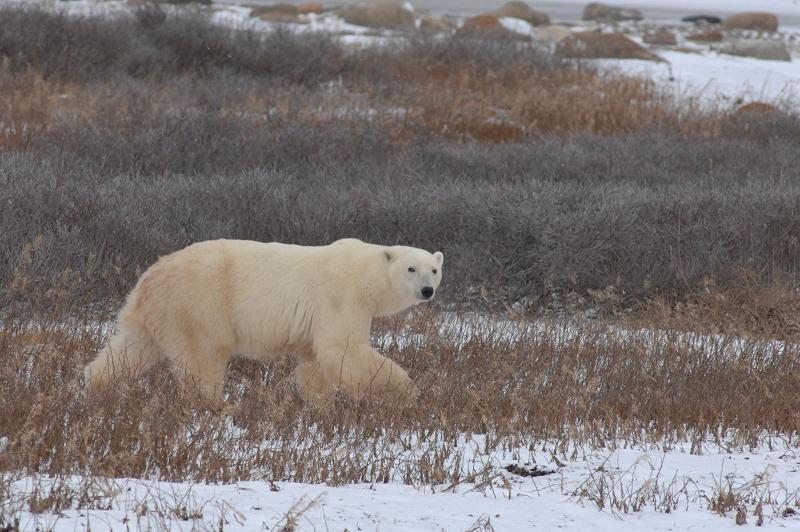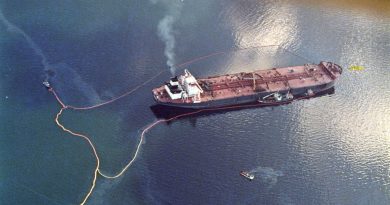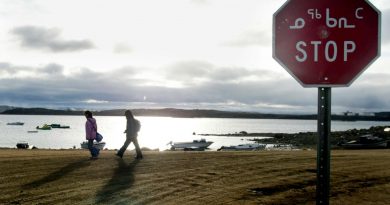Feature Interview: Polar bear conservation in Canada’s North
 In Canadian parks the public is warned to not feed the bears. But scientists say things will get so bad for polar bears, officials may have to consider providing food to get them through the coming hard times.
In Canadian parks the public is warned to not feed the bears. But scientists say things will get so bad for polar bears, officials may have to consider providing food to get them through the coming hard times.
“Based on the best information we have right now, polar bear populations are going to be challenged by climate change quite severely,” said Andrew Derocher, professor of biological sciences at the University of Alberta.
“We know that we are going to lose about two-thirds of the world’s polar bear populations from the best science we have and the best projections in time. And on the way of getting there it’s going to be very bumpy for the bears and people who live in polar bear habitat.”
Prof. Derocher is one of 12 world experts who prepared this new study looking at ways to best manage the coming changes.
Sea ice in the arctic is shrinking rapidly, particularly in the southern regions of the polar bear habitat. “Polar bears need sea ice to survive,” said Prof. Derocher. “There’s nowhere in the world where we have polar bear populations persisting where there isn’t adequate sea ice for enough of the year.” Bears need to ice as a base from which to hunt. “They’re not going to become more terrestrial. We’ve never seen that during any of the last warming periods that have existed. They basically just disappear from places that are too warm.”
The study recommends a range of options to try to save the polar bears. At one extreme, authorities could do nothing or euthanize suffering bears. A more interventionist approach would involve a capacity to rehabilitate bears. Where there are rehabilitation facilities bears could be captured for a short period, fed and then released when conditions improve. The paper mentions an extreme intervention of temporarily providing food drops as a way of supplementing the polar bears’ diet in times of need. In the worst case scenario, officials could perhaps create semi-wild parks or refuges.
These possible temporary solutions are predicated on the idea that there is still some sea ice. “It’s quite clear that many of the areas where polar bears are found they’re not going to have adequate sea ice,” said Prof. Derocher. “So until we deal with the two root causes which are human population growth and climate change, we’re not going to have a bright future for this species.”
To listen to Lynn Desjardins’ interview with Andrew Derocher on Radio Canada International, click here
Related Link:



